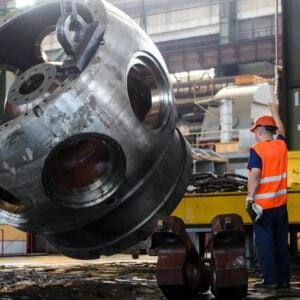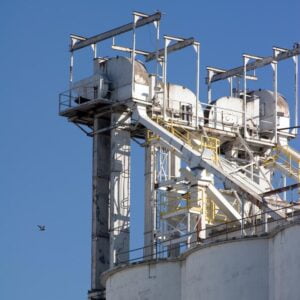Understand your maintenance performance potential.
Frequently, the starting point of a maintenance improvement journey is to obtain a clear understanding of the level of maintenance management maturity and performance that currently exists. Maintenance maturity assessments, when repeated using a consistent framework, also are valuable in tracking improvements and progress towards your desired goal.
How we can support you
We have developed a comprehensive maintenance maturity assessment methodology, and have applied it to over 80 different organisations. The methodology assesses maintenance practices along five main dimensions:
- Strategy,
- Organisation structure,
- People and skills,
- Management processes, and
- Technology
The underlying philosophy behind the approach is that these five dimensions are the ‘levers of change’ – the aspects of maintenance that management can modify to bring about improvement in maintenance performance. These five dimensions are then further broken down into 300 individual assessment elements in 24 sub-areas that are assessed individually, and grouped appropriately, to provide an overall assessment.
Scores are assigned to each of these assessment elements using information typically obtained from the following sources:
- Interviews with a wide range of personnel within the maintenance organisation, including any applicable contractors.
- Interviews with supply and production representatives to understand the interfaces and interactions between each of these departments and the maintenance organisation.
- Observation of tasks being performed, e.g. extraction of data from a CMMS
- Attendance and observation of the conduct of various daily, weekly and monthly meetings.
- Examination of documentation used and generated by the organisation including, but limited to:
- Policy documents
- Strategy documents
- Plans – short and long term
- Procedures and instructions
- Organisation chart
- Position descriptions
- Regular weekly and monthly reports
- Shutdown plans and reports
- Other reports
Related case studies
Ready to begin your journey towards improved maintenance?
We can support you in improving your maintenance practices. To find out more about our capabilities with regards to maintenance management, feel free to view the case studies above, or contact us for an obligation-free discussion.
Our maintenance management training courses
Do you need to expand the maintenance management capabilities of your team? Our training courses are run throughout Australia and online, and offer a comprehensive, practical overview of maintenance best practices.
-
 Maintenance Planning and Scheduling Excellence$1,935.00 – $2,150.00
Maintenance Planning and Scheduling Excellence$1,935.00 – $2,150.00 -
 Maintenance Planning Master ClassOriginal price was: $4,795.00.$4,315.50Current price is: $4,315.50.
Maintenance Planning Master ClassOriginal price was: $4,795.00.$4,315.50Current price is: $4,315.50. -
 Introduction to Maintenance ManagementOriginal price was: $1,075.00.$967.50Current price is: $967.50.
Introduction to Maintenance ManagementOriginal price was: $1,075.00.$967.50Current price is: $967.50. -
 Spare Parts Optimisation$967.50 – $1,075.00
Spare Parts Optimisation$967.50 – $1,075.00 -
 Effective Shutdown Planning and ManagementOriginal price was: $1,075.00.$967.50Current price is: $967.50.
Effective Shutdown Planning and ManagementOriginal price was: $1,075.00.$967.50Current price is: $967.50.
Our maintenance management articles





